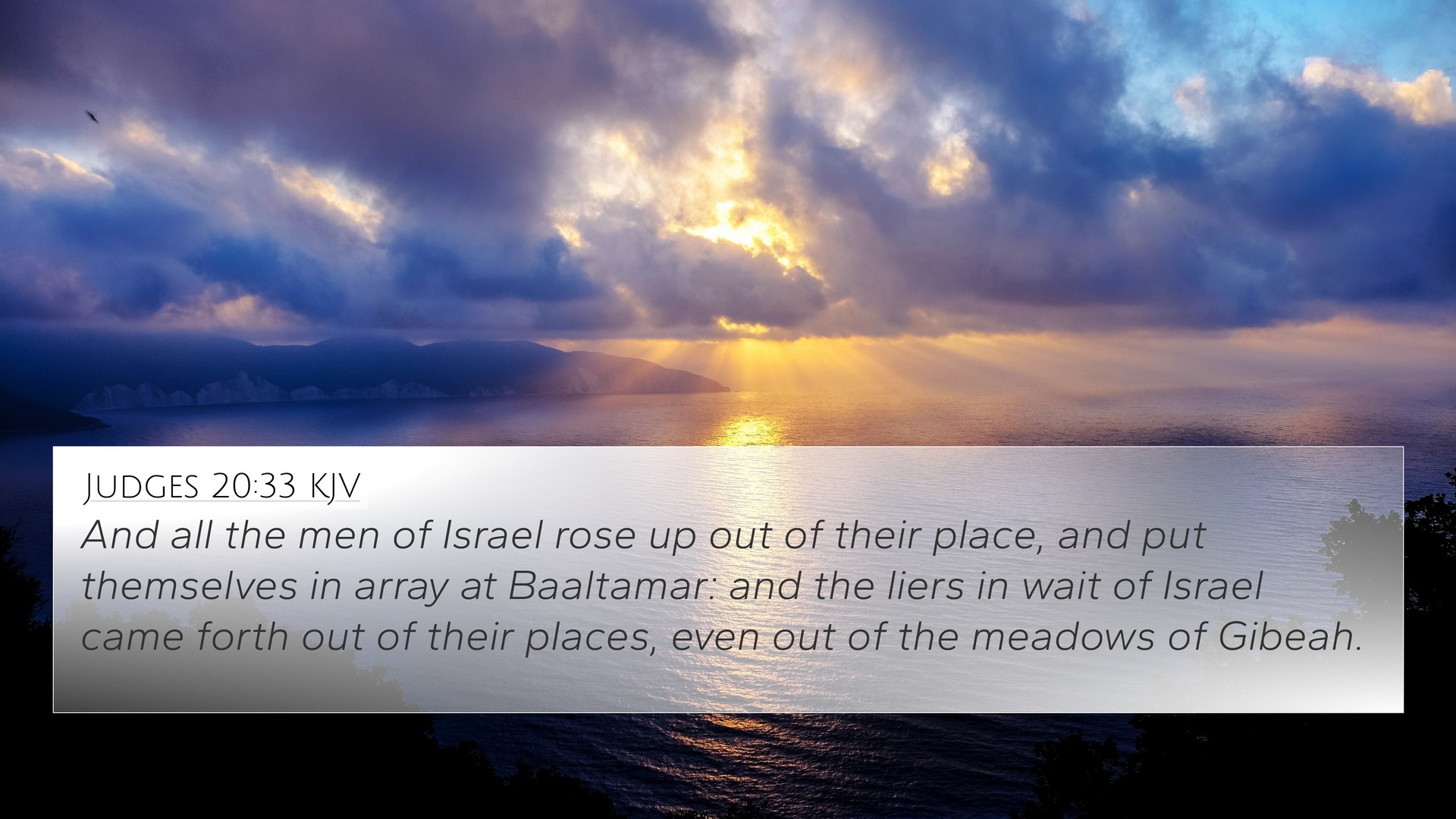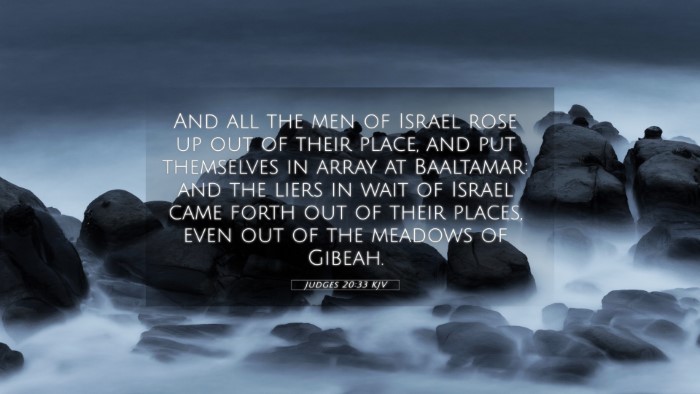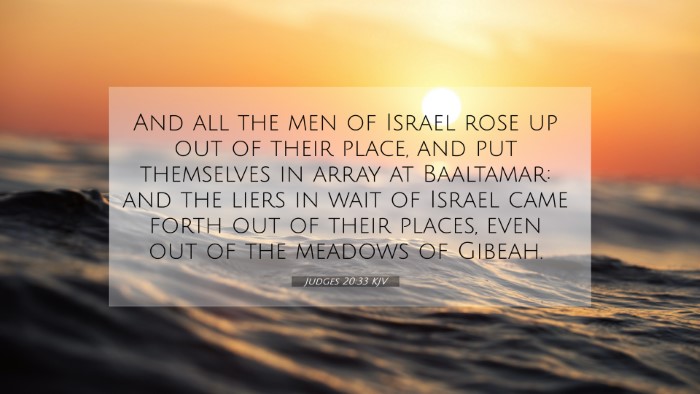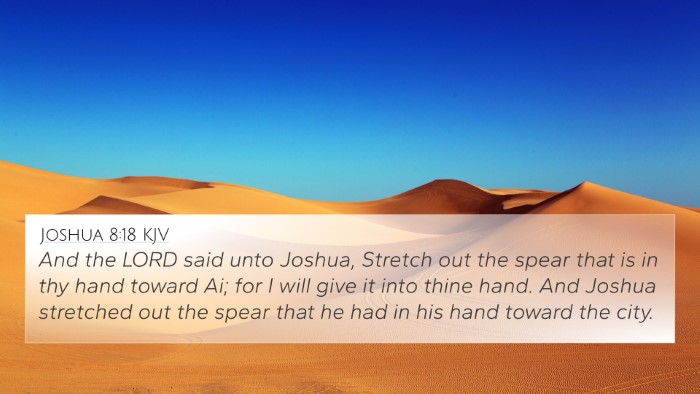Understanding Judges 20:33
Judges 20:33 states: “And all the men of Israel rose up out of their place, and put themselves in array at Baaltamar: and the liers in wait of Israel came forth out of their places, even out of the meadows of Gibeah.” This verse portrays a pivotal moment in the narrative of the Israelite tribes' conflict against the tribe of Benjamin.
Contextual Background
The events leading up to Judges 20 involve a civil war within Israel, which erupted due to a grievous crime committed in the city of Gibeah, a city belonging to the tribe of Benjamin. The Israelite tribes united against Benjamin to seek justice and to eradicate the evil among them.
- Gathering of Tribes: The verse reflects the solidarity among the tribes of Israel in confronting a moral crisis.
- Strategic Positioning: The mention of Baaltamar signifies the organization and strategy behind their approach, indicative of military readiness.
- Deception and Strategy: The “liers in wait” exemplify the use of tactical deception in warfare, echoing themes from the story of Gideon.
Insights from Commentaries
Matthew Henry emphasizes the significance of unity among the Israelite tribes. He argues that their collective action was necessary in restoring righteousness, demonstrating that true justice often requires unified efforts.
Albert Barnes provides insight into the location of Baaltamar, noting its importance in Israel's history. He suggests that the geographic references are essential for understanding the dynamics of the battle and the geographical alignments of the opposing factions.
Adam Clarke highlights the strategies employed during this conflict. He explains that the “liers in wait” refers to troops placed strategically to ambush the enemy, drawing a parallel to the tactical operations found in other biblical accounts such as the confrontations of David and Saul.
Thematic Connections
This verse is not only a historical account but also serves as a foundation for several theological themes:
- The importance of communal support: Reflects how healing societal wounds often requires collective action.
- Justice and Righteousness: The importance of pursuing justice through righteous means.
- Strategic Warfare: Highlights the necessity of planning and strategy in overcoming evil.
Cross-References
Judges 20:33 resonates with various other scripture passages that reflect similar themes:
- 1 Samuel 11:7 - Saul's preparation for battle against the Ammonites.
- 1 Chronicles 12:23 - The gathering of warriors to David's side, signifying unity in cause.
- Joshua 8:4-7 - The ambush strategy used against Ai.
- 2 Samuel 5:24 - David's divine instructions on when to ambush the Philistines.
- Proverbs 20:18 - Counsel and plans are vital for warfare.
- Psalm 20:7 - Trusting in God over earthly strategies.
- Galatians 6:1 - The importance of restoring someone caught in sin with a spirit of gentleness.
Conclusion
Judges 20:33 serves not only as a narrative of conflict but also as an instruction for communal righteousness and the pursuit of justice against evil. The verses and themes highlighted through commentaries and cross-references provide a deeper understanding of how this passage resonates within the broader biblical context.
Further Study Tools
For those interested in exploring Bible verse meanings more deeply, consider using:
- Bible Concordance: A valuable tool for finding specific words and their occurrences.
- Cross-reference Bible Study Guides: Resources that help uncover connections between verses.
- Bible Reference Resources: Comprehensive materials for deeper theological study.
- Bible Cross-reference System: Methods and tools for systematic Bible study.
- Inter-Biblical Dialogue: Exploring themes between different books of the Bible.



